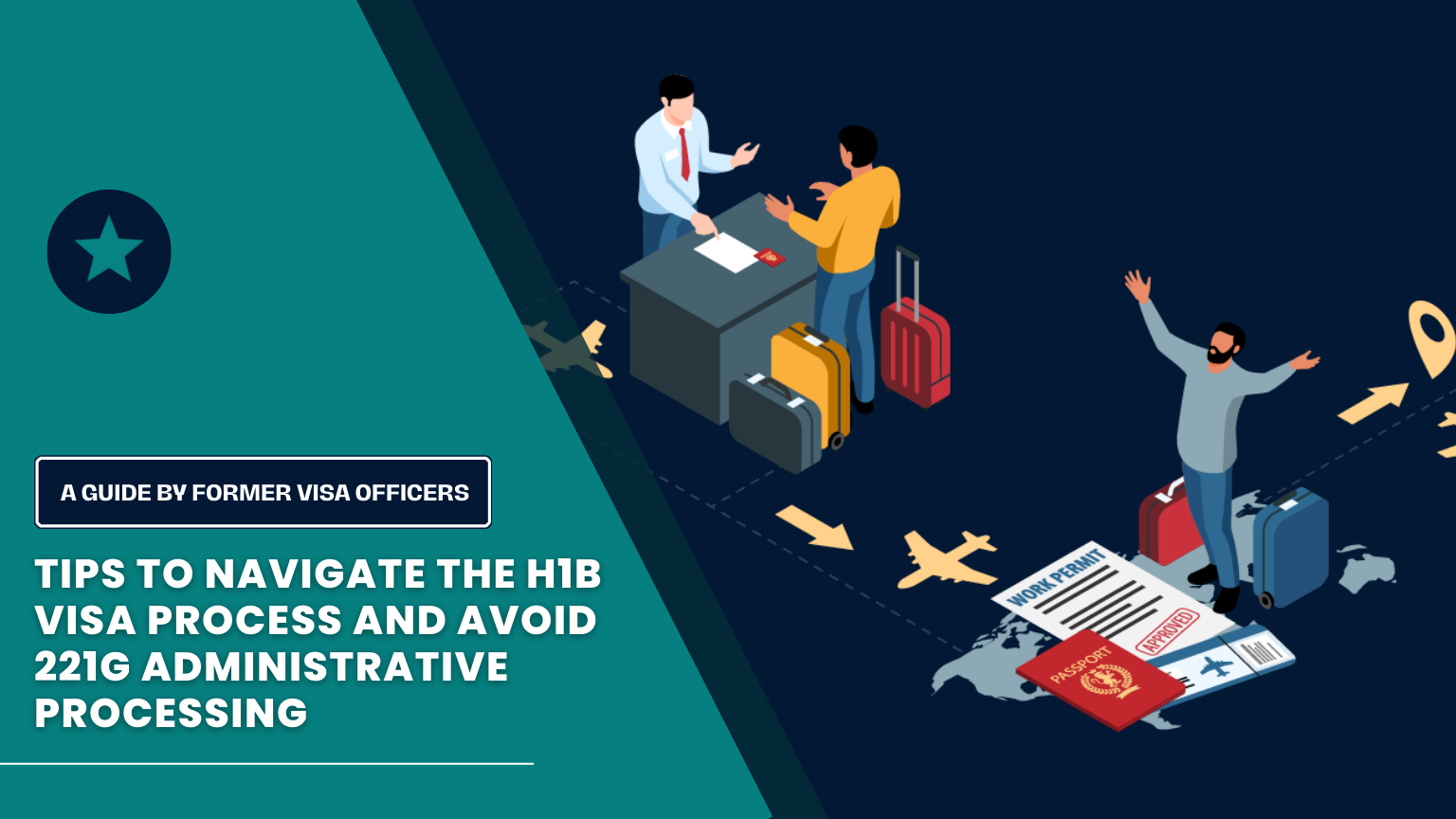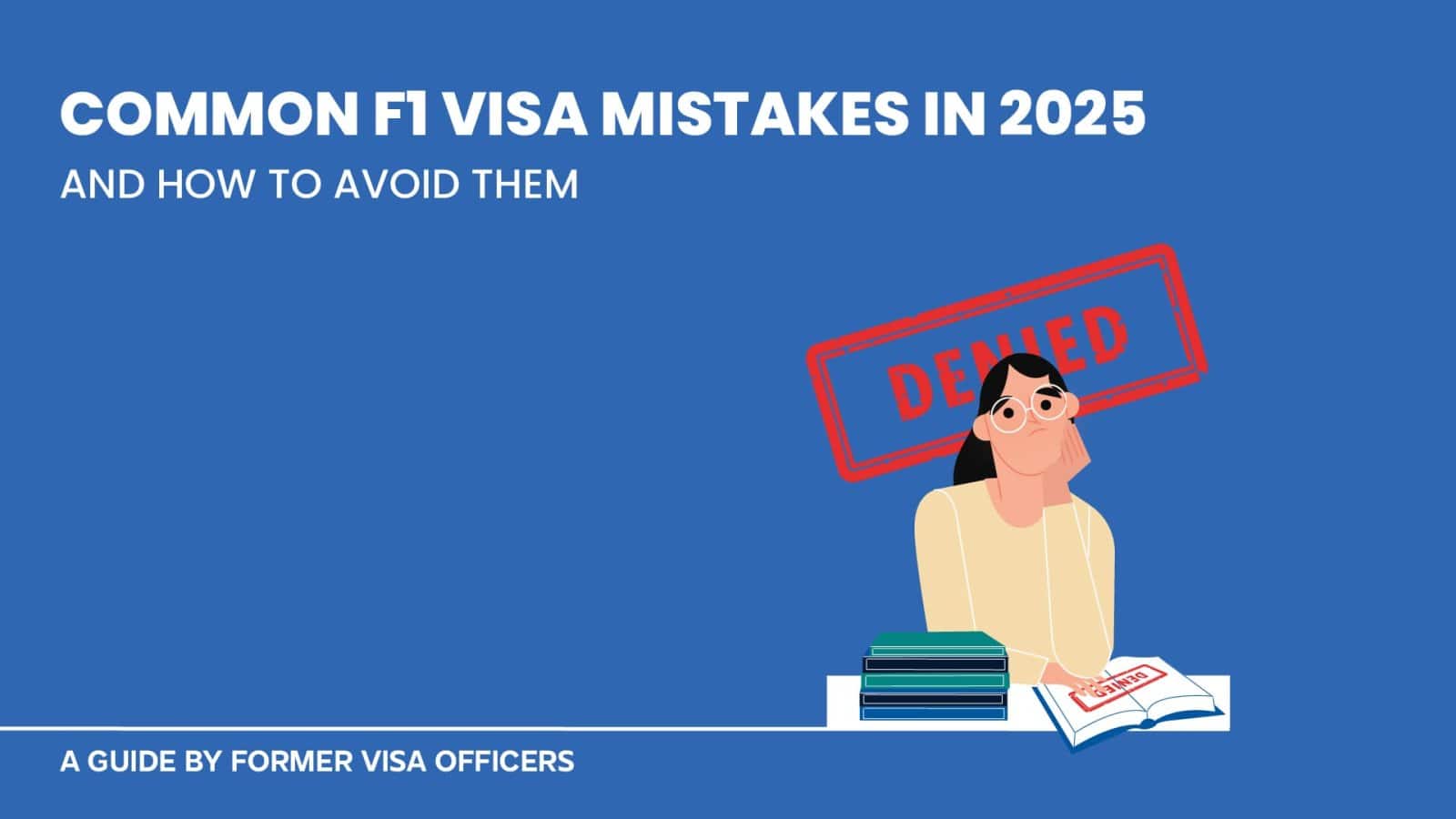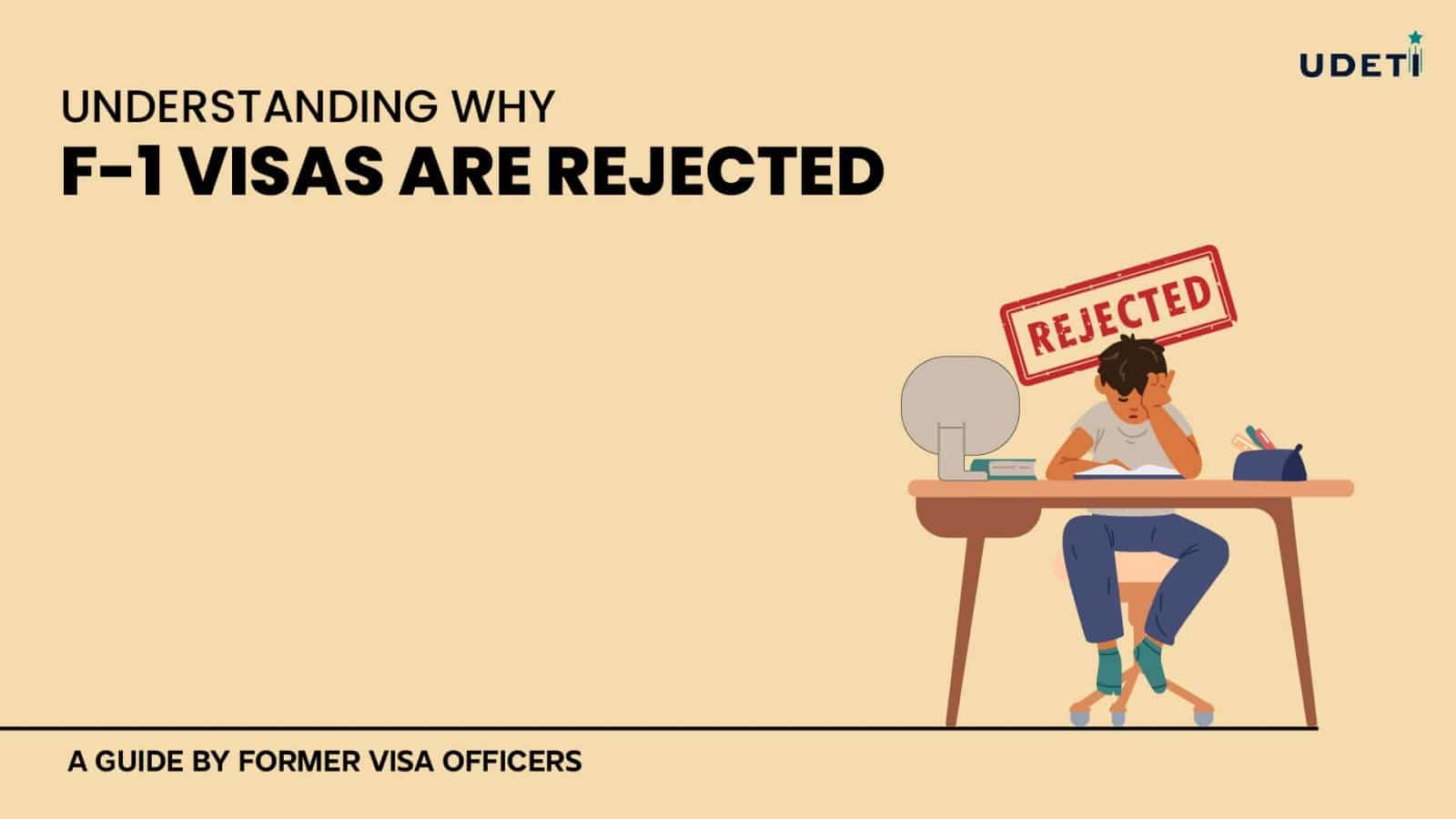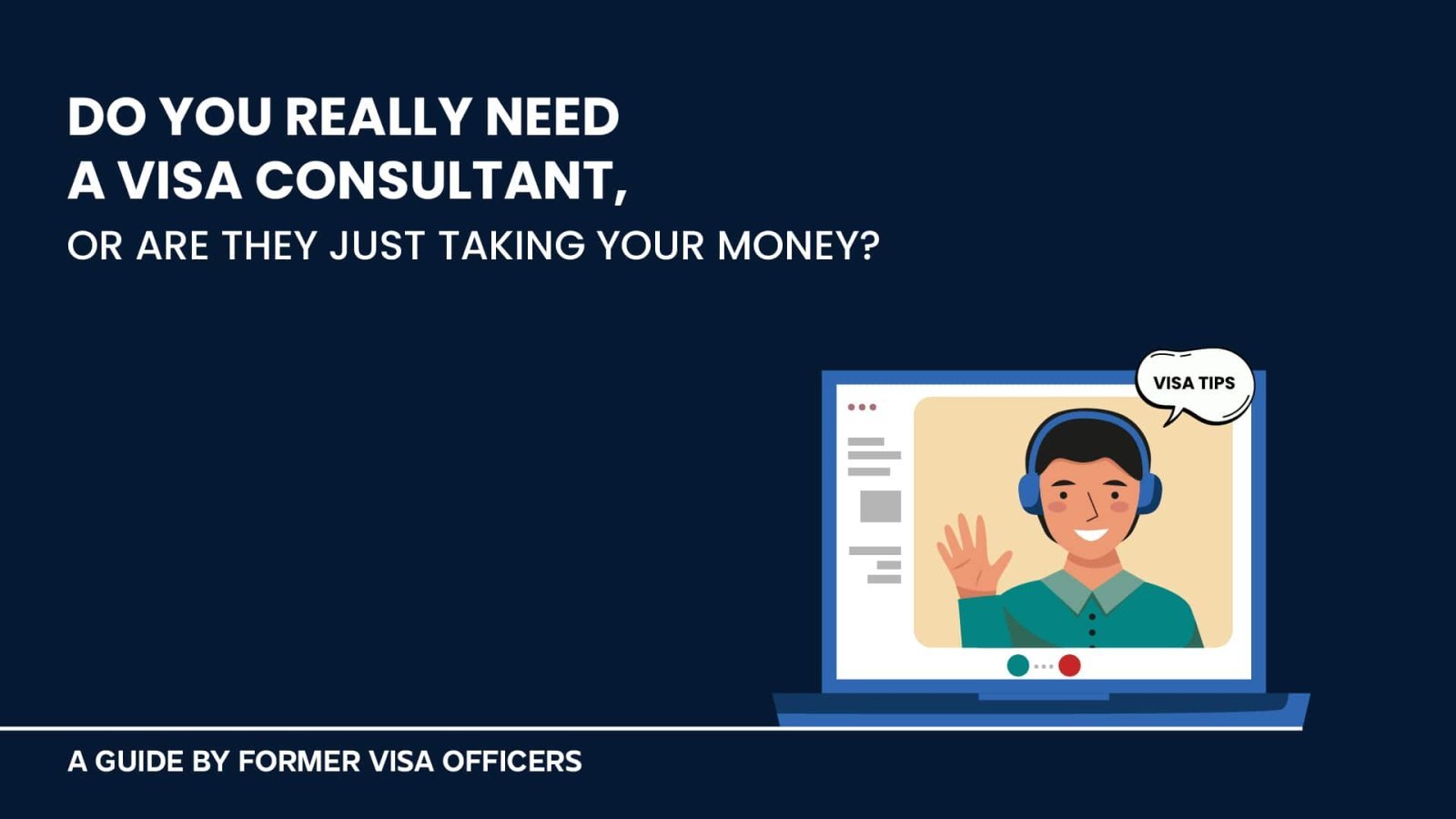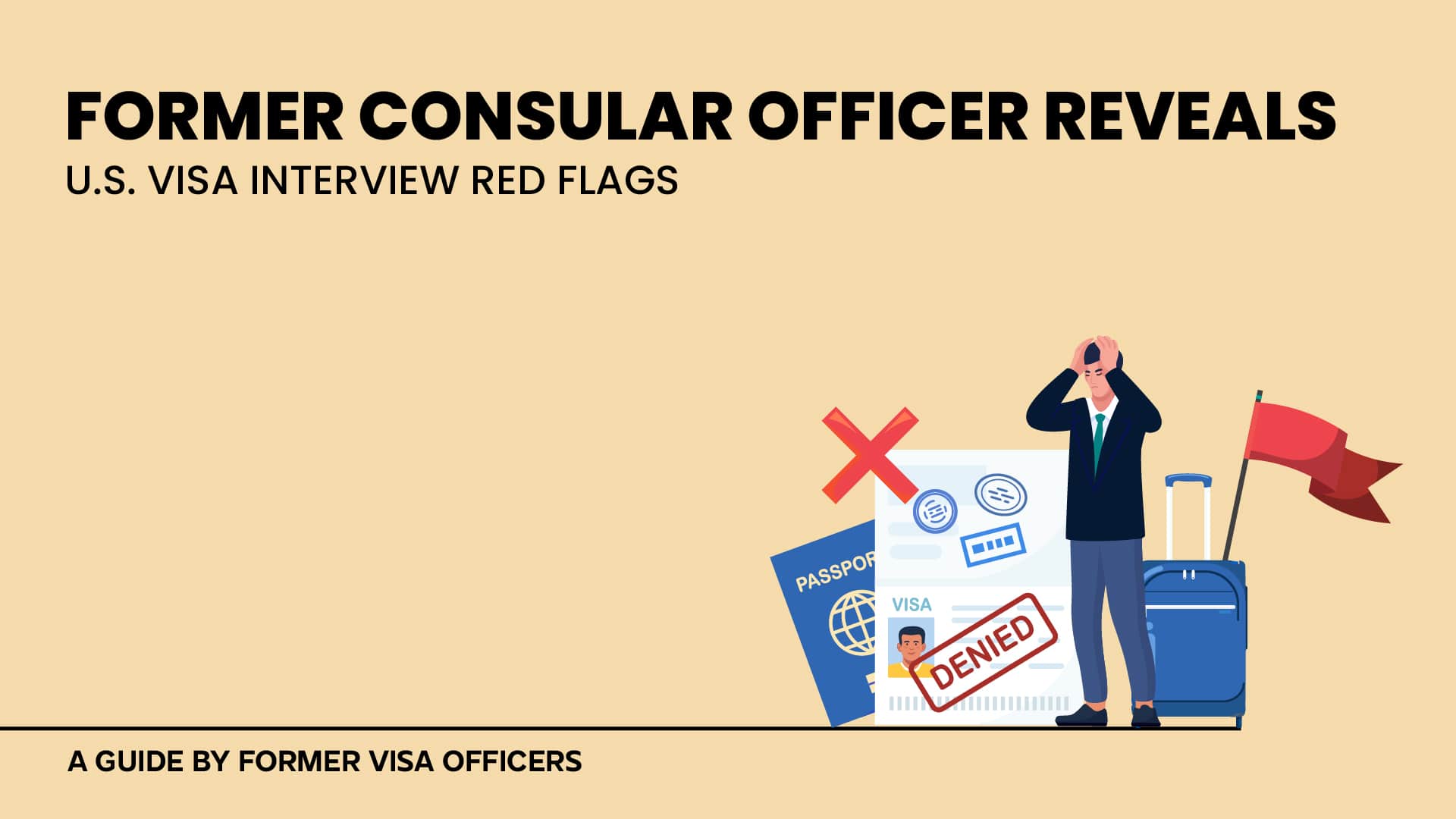Navigating the intricate H1B visa process is challenging. We know going into your H1B visa interview is stressful. All your colleagues are speculating about the timeline and process, and you need sound advice! That is why your UDETI USA Visa Consultant, a seasoned ex-consular officer with tons of H1B experience, wrote this blog. With this information, we hope you will get indispensable insights to sidestep the challenges of 221(g) administrative processing, saving time and money.
A visa refusal under section 221 (g) means that you must present the correct credentials to the consular officer to establish your eligibility for a visa. It is essential as per U.S. law under section 291 of the INA.
In this concise guide, we distill eight crucial tips from a wealth of experience, offering a comprehensive understanding of the nuances that can shape the success of your H1B visa application.
1. Understanding 221(g) “Administrative Processing”
Most visa applicants are perturbed when waiting to receive communication about the decision on their case during a visa interview. The good news is that being put ‘on hold’ or ‘kept pending’ due to “administrative processing” need not be the worst-case scenario because it does not mean a refusal or denial.
All applicants must first understand that 221(g) under the Immigration and Nationality Act is not just a routine administrative check; it’s technically a refusal until additional documentation is submitted or the consular officer clears the case for approval. The officer may decide to wait to approve or deny your request.
Often termed “Administrative Processing” (A.P.), it may be because some critical information is missing in the application or incomplete paperwork; whatever the case, the consular officer will let you know by the end of the interview. More often than not, such decisions are due to insufficient interview responses or missing vital documents, such as the end client letter. If you don’t have this letter, pull up email correspondence to show it is under process.
The easiest way to handle administrative processing is to ensure you are fully prepared for the visa interview. When you discuss it with your USA Visa Consultant, the ex-consular officer will suggest a winning strategy that matches your current situation on how best to attend the interview. The tips and insights you get will help you shed your inhibitions and gain confidence, helping reduce the chances of your application taking longer than expected due to administrative processing.
2. Effective Handling of 221(g) Administrative Processing
a. Submit Documents Promptly:
Promptness in submitting the required documents is crucial to processing 221(g) quickly. It might include the end client letter or any additional information requested by the consular officer. A timely response showcases diligence and a genuine commitment to complying with the visa requirements. If the consular officer feels that more information from sources other than yourself may help establish your eligibility, they may decide that it warrants further administrative processing. Please double-check your documents before submitting them.
b. Follow-Up via Email:
After document submission, proactive follow-up via email with the Consular Information Unit is advisable. A lack of response within a few weeks may necessitate a gentle reminder to ensure the case is actively under review. This proactive communication demonstrates your eagerness and commitment to resolve any outstanding concerns.
3. Common Mistakes H1B Applicants Make
Here are some common pitfalls that H1B applicants often encounter during the interview:
a. Inability to Explain Job Duties:
Applicants frequently falter and need help articulating their job duties. Understanding your role, responsibilities, and how they align with the specialty occupation is crucial. Practice articulating this clearly before the interview. You must practice sessions with a friend or in front of a mirror. The consular officer may ask you about your company, location, number of employees, salary, highest level of education, and how many dependents you have back home. Although not rapid-fire, you must be ready with the answers coming spontaneously. It helps impress upon the consular officer that yours is a genuine case.
b. Lack of Understanding of the Company:
Failure to comprehend the operations and end products of the employing company is a significant red flag. Spend time researching your employer and getting enough details into your arsenal. Details include the size of the company, the number of years it has existed, etc. Consular officers seek assurance that applicants understand the nature of their employer’s business and their role within it. The more information you gather about the company, the more confident and relaxed you will appear.
c. Weak English Language and Communication Skills:
Effective communication in English is paramount. Your English skills can improve your ability to convey critical information during the interview. Speaking fluently in English is a vital requirement for you. Try not to fake an accent; it is more important to speak clearly. Also, maintain the right pitch for your voice; don’t be too loud or soft. Refrain from sounding too formal or casual; be just how you are. Prioritize language proficiency to ensure a smooth and confident interaction.
Clear communication is critical to success. During the interview, maintain eye contact with the consular officer. Answer all questions concisely, clearly, and politely. It is okay to ask the interviewer to repeat a question if you have yet to understand it. Avoid fillers like ‘hmm,’ ‘ah,’ like, etc., which indicates you are unprepared for the interview.
Need to speak to a former U.S. consular officer?
4. Prepare for Common and Less Common Questions
Applicants should be thoroughly prepared to answer a spectrum of questions ranging from basic to less common:
a. Basic Questions:
Who is your petitioner?
Who is your client?
What are your work duties?
How did you find your job?
How long have you been working for your current employer or end client?
What is your salary?
What is your highest level of education?
How many dependents do you have?
b. Less Common Questions:
What was your interview process like with your end client?
How long have you been working for the end client?
How many employees does your employer have?
How many employees work at your work location?
What is the total turnover, and what is the total revenue of your company?
Please describe your company in a few words.
Describe the relationship between the end client/petitioner and other middle vendors.
5. Have Essential Documents Ready
a. Basic Documents:
- W2 tax returns (if you have been working already in the U.S.
- Paystubs
- Have the end client letter prepared, and keep it handy.
- If the end client letter is unavailable, produce some email correspondence acknowledging your employment to back you up.
- A letter from your employer stating you have been working with them since (date), and these are the work responsibilities, and this is the salary. Ensure the letter is recently dated; the same applies to all documents you submit to the consular officer.
b. Less Commonly Asked For:
- Include educational documents, transcripts, degree certificates, past F1 i-20s, etc.
- Middle-vendor documents must also be included, especially if you have middle-vendor relationships.
- Other legal documents, USCIS documents, and Labor Condition Application (LCA) are required, just to be on the safe side.
- All the I-797s or i-797As and other notices of actions you have received
- Court documents if you have ever been arrested (e.g., DUI court procedure documents
- I-129 or other legal documents
Ensuring that all essential documents are readily available and organized enhances the efficiency of the application process and instills confidence in the consular officer.
6. Truthful Answers and Direct Responses
Applicants should provide truthful and direct answers during the interview and on the DS-160 form. Attempting to confuse the consular officer can lead to additional scrutiny and potential delays. Transparency and clarity are crucial in establishing credibility.
7. Follow-up emails for 221G:
Here are a few specific email contacts for follow-up, depending on the consulate:
Embassy New Delhi: nivnd@state.gov
Consulate Hyderabad: HydCEA@state.gov
Consulate Chennai: Chennaiciu@state.gov
Consulate Kolkata: ConsularKolkata@state.gov
Consulate Mumbai: MumbaiConsDirect@state.gov
Establishing effective communication channels helps obtain updates and ensures your case progresses. Following up with emails is always a good idea, which you can produce as evidence during the interview.
8. Petition Revocation Insights
While an approved H1B petition is prima facie evidence of entitlement to H1B classification, officers can request reconsideration based on specific evidence unavailable during the initial approval. Reasons for revocation include discrepancies in work locations, qualifications, and misrepresentation.
Conclusion
In conclusion, preparing well before attending a visa interview is essential. Have all documents in order, and ensure that you practice the answers to likely questions from the consular officer. Yvette Bansal’s extensive experience as an H1B visa lead in India offers invaluable guidance for H1B applicants aiming to navigate the intricate visa process successfully. View Yvette’s YouTube video here. By following these tips, applicants can enhance their preparedness, improve their chances of approval, and avoid common pitfalls that may lead to 221(g) administrative processing.
(This blog post was written by Yvette Bansal, a former consular officer, and Ramesh Vittal Rao, a Senior Content Writer.)
DISCLAIMER:
This blog does not endorse or advocate for any illegal activities. All content presented here is intended for educational purposes only. The viewpoints expressed do not constitute legal advice and are solely based on the writer’s opinions and experiences. Please use the information provided responsibly. Any advice given is of a general nature and should be applied to your specific circumstances with caution and consideration.
Copyright © 2024 UDETI LLC. All rights reserved.

